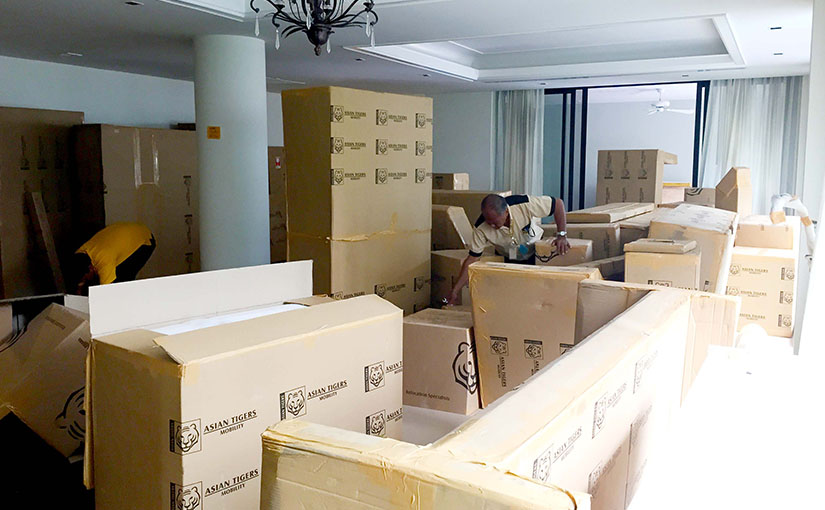What Not to Store in a Storage Unit? Only 20 Items to Avoid
Rob Chipman: A Fond Farewell and the Start of New Adventures

Storage units offer a good avenue to store belongings that one cannot fit into their homes. However, not everything fits within a storage unit. For reasons of safety, legality, or even probable damage, it is important to know what not to store in a storage unit. This guide goes through 20 things on what not to put in storage unit, especially an outside unit, to keep one within the rules and protect one’s belongings.
1. Perishable Food
Perishable food is an absolute taboo in any storage unit. Such items will spoil in no time and thus create abominable odors, further luring insects and rodents.
Hint: Retain only the non-perishable items, like canned foods; however, abstain even from keeping those in an outside storage unit.
2. Plants
Others are plants, which, of course, would require sunlight, air, and water to survive. A storage unit, especially an outside one, would not provide those conditions for the plants to sustain their lives.
Hint: Make arrangements to store your plants with friends or family, or take them with you during a move.
3. Hazardous Materials
Most units do not allow chemicals of flammable liquids or hazardous material of any type as they could ignite in a fire. Examples, but not limited to are: gasoline, paint, propane. These items could be dangerous when in an enclosed space.
Hint: Dispose of hazardous materials properly or store them in a specialized facility.
4. Firearms and Ammunition
While the legislations might differ from state to state and country to country, generally speaking, firearms and ammunition should not be stored in a storage unit due to safety concerns and strict legal regulations on them.
Hint: Firearms and ammunition should be kept in licensed gun storage facilities that are equipped with proper security measures.
5. Explosives
Explosives, including fireworks, are highly hazardous materials and strictly forbidden to keep in storage units. The possibility of explosion or fire endangers other units and even the facility itself.
Hint: Always abide by the recommendations about storage and disposal that come from local authorities.
6. Illegal Drugs
No illegal drugs or items related to drug dealing will be permitted in the storage units. It also includes drugs, stolen goods, items relating to unlawful practices.
Hint: The storing of illegal substances within a storage unit may result in severe legal consequences. Always follow the law as dictated by the locals.
7. Odoriferous or Aromatic Products
Perfumery items, such as air fresheners and candles, are not preferred to be stored since these will attract pests and insects; the smell might also penetrate other units nearby.
Hint: In cases that one needs to store fragrance items, make sure these are in airtight containers.
8. Wet or Damp Items
However, one must bear in mind that moisture is the natural enemy of stored goods as it generates mold and mildew. Wet or damp items-anything from clothes to towels to furniture-should never be packed in a storage facility.
Hint: Make sure to dry all items before storing them in a facility to prevent moisture buildup within.
9. Tires
Most storage facilities do not allow the storage of tires. This is because the tire is hazardous to dispose of and if not disposed of correctly can create environmental hazards.
Hint: Call your local recycling center or tire disposal facility for proper disposal options.
10. Personal Documents
Passport, social security card, birth certificate, and other monetary information are better safed in a locked fireproof safe at home, or within the safety deposit box in a home or bank.
Hint: Storage units are secure. However, these primary personal documents are better kept with more protection.
11. Cash
Cash and other precious items like jewelry should not be stored in a storage facility due to the risk of theft or loss. Not even with good security can this be worth taking a chance on.
Hint: Put cash in banks or safety deposit boxes, and valuable jewelry in secure and monitored locations.
12. Collectibles and Antiques
Temperature fluctuations, humidity, or even theft may damage the expensive collectibles, antiques, or whatever valuable things are stored in a storage unit, especially when it is not climate-controlled.
Hint: If necessary, then take the help of a specialized storage service designed for valuables or go for a climate-controlled unit.
13. Pets or Animals
It may go without saying, but it must be emphasized nonetheless that no animal can be living or deceased within the storage unit. Storage facilities simply are not designed for animal care and certainly constitute egregious violations of animal welfare.
Hint: Plan accordingly for pet care when relocating, or at any time one is temporarily unable to accommodate them.
14. Medical Supplies or Equipment
Others, like oxygen tanks, are flammable and highly volatile. It is very unsafe to store these in a storage unit.
Hint: Medical supplies are better stored at a hospital or in a pharmacy, or some other facility that is meant for medical supplies.
15. Narcotics
Narcotics of any sort, whether prescription or otherwise, should not be kept in a storage unit. Even prescription medications can become ineffective if subjected to changes in temperature and humidity.
Hint: Wherever possible, store drugs in a cool, dry place or with medical personnel.
16. Art Work
Valuable artwork can be compromised by dust, moisture, and temperatures. Artworks that are not climate-controlled may fade, warp, or even incur irreparable damage.
Hint: If artwork has to be stored at all, let storage be done in a climate-controlled facility designed for the keeping of fine art.
17. Vehicles Without Insurance
Some facilities allow vehicle storage as well, but most of the time, a vehicle should not remain uninsured and in storage. Ensure that the vehicles have valid insurance at all times, as one cannot rule out any accidents or damage while in storage.
Hint: Have your vehicle well-insured and in great shape prior to putting it into storage.
18. High-Value Electronics
Computers, TVs and game systems can all be rather sensitive to fluctuating temperatures in uncontrolled climate units. The internal componentry can become degraded by dust, moisture and extremes of temperature.
Hint: When possible, store in a climate-controlled unit and ensure protective materials are used in storage.
19. Family Heirlooms
Irreplaceable and emotional family heirlooms, such as photos, letters, or specific items of jewelry, should not be stored in a unit-outside facility most of all. There is far too much risk of something happening with the environmental changes, and of course, theft.
Hint: Store family heirlooms in a secure, climate-controlled space, such as a safe or a locked room in your home.
20. Important Work or Business Documents
Like personal documents, one should never store vital business documents, contracts, or even files in a storage unit because theft or damage can happen.
Hint: Scan important business documents and store them in cloud storage or in secure, physical offsite storage designed to preserve documents.
Conclusion on What Not to Store in a Storage Unit
It will be important to know what is not to be placed in a storage unit, so as to keep your belongings safe and preserved. Hazardous materials, perishable items, and irreplaceable valuables-from the legal to the practical scope-should not be stored in these facilities. By understanding what not to store in a storage unit, especially on what not to put in an outside storage, you can prevent damage, theft, and other complications while keeping your possessions safe and sound.
If you’d like to discover the latest information about the moving and relocation world, please also check other industry news from Asian Tigers Group.
Your trusted moving support is only a few clicks away from your hand. Contact the Asian Tigers office near your origin or destination for your next move. You can also check our Frequently Asked Questions resource, AI-powered by Tiger Move Bot.









